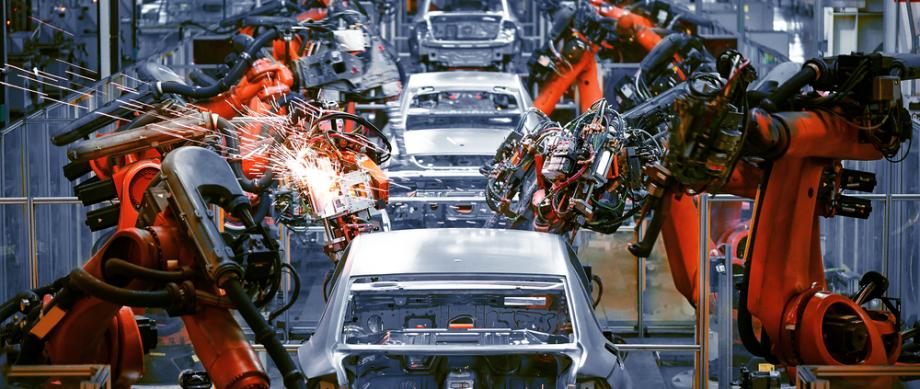GLOBSEC AutoFocus Report launch x Economic Growth and Sustainability Pro

On March 29, 2022, GLOBSEC hosted the launch event of its new study “Slovakia Automotive Industry 2.0: The time is Now to Retool for the E-Mobility Era”, funded by the European Climate Foundation (ECF) and completed in collaboration with CambridgeEconometrics and the Slovak Electric Vehicle Association (SEVA).
The study launch event brought together policymakers, experts from the private and public sectors, and other relevant stakeholders to discuss the pressing challenges and opportunities emanating from the transformative wave in the automotive sector.
“Slovakia Automotive Industry 2.0” highlights that the automotive industry in the country must undergo deep transformation if it wants to retain its export market shares, GDP growth, and employment levels. The inability to adapt to the transition from internal combustion engine to electric vehicles production, in the worst-case scenario, will lead to a 10% drop in national GDP compared to the best-case scenario. Total employment will drop by 4.5% on 2020 levels.
Key Takeaways The participants identified practical steps for Slovakia to maintain its position in the automotive industry landscape, taking inspiration from the study.
As the EU level, the following key actions have been identified to foster battery production and jump-start electric vehicle manufacturing:
- Developing an EU-wide battery regulation.
- Outlining a plan to secure minerals for this new industry, factoring in considerations stemming from the disruptions caused by the Russian war on Ukraine and the COVID-19 pandemic.
- Introducing a strategy to reskill or upskill workers throughout Europe to support the transition from low-skilled to high-skilled tasks.
4. Preparing a plan on batteries’ recycling and waste management.
At the national level, participants outlined the following key steps for Slovakia to capitalise on the transition to electric vehicle production:
- Preparing greenfield sites that could be immediately available for investments and construction.
- Reskilling the labour force in the automotive sector.
- Speeding up the administrative process and cutting red tape: the average time to obtain a business permit is a year and a half.
- Fostering public-private collaboration and connecting research institutions with the large industrial players.
- Engaging citizenship in the debate and transformational process.
- Cooperating in cross-border, regional projects in automotive. With 74% of Slovakia’s key export markets announcing bans on ICE vehicles sales by 2035, the Slovak automotive industry needs to urgently act and adapt to the transformative wave.